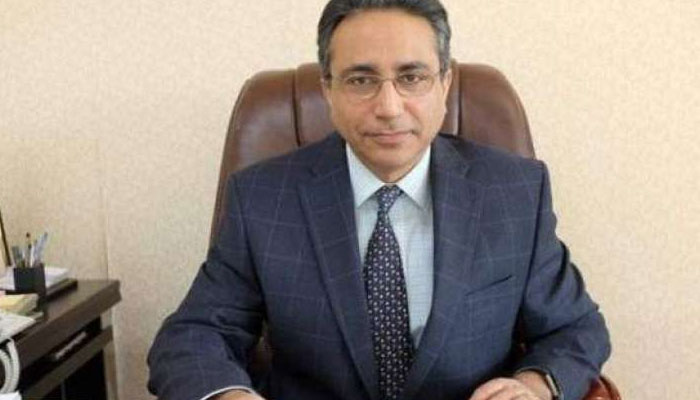Beijing agrees to turn Thar coal into diesel, gas under CPEC
ISLAMABAD: In a welcoming development, Beijing has agreed in principle to include the most strategic project of turning Thar coal into diesel and gas under CPEC umbrella and to this effect, it will first provide financing for feasibility study prior to launching the project of paramount importance.
If the feasibility study comes with positive result, China will not be hesitant to complete this project.
Special Assistant to Prime Minister on Petroleum Nadeem Babar confirmed this development to The News saying, “Yes, the authorities from China in Joint Cooperation Committee (JCC) meeting held here on November 5, 2019 gave their willingness to provide funding for the feasibility study under CPEC financing mechanism for the project under which Thar coal will be converted into diesel and gas.”
However, China, he said, had asked Petroleum Division to share its master plan. To this effect, Petroleum Division will share its master plan with top mandarins of China’s National Development and Reform Commission (NDRC) that will, after studying the master plan, select the projects.
“We want refineries, gas pipelines within the country, gas storages and oil and gas exploration and production activities and to this effect Petroleum Division will soon share its projects with China and then the authorities from Beijing will select the projects of their own,” Nadeem Babar said.
Special Assistant to PM, however, said that as far as coal to liquid and gas project is concerned, the government is too much serious to convert Thar coal into liquid (diesel) and gas and China has also agreed to complete this project.
He mentioned that the Shenhua Ningxia Coal Industry Group, a subsidiary of China’s biggest coal producer, the Shenhua Group, has already successfully installed the project to convert coal into oil in the northwestern Chinese region of Ningxia, the biggest plant of its kind in the world.
The coal-to-liquid (CTL) project, which has an annual production capacity of 4 million tons of oil, was built by the Shenhua Ningxia Coal Industry Group, a subsidiary of China’s biggest coal producer, the Shenhua Group.
“We have held preliminary meeting with the management of the said company and more talks will also be held for reaching a win-win agreement and this very important development took place when Prime Minister Imran Khan visited China on October 8 and being a member in his delegation managed to have meeting with top management of the said Chinese company Shenua-Ningxia, which has the expertise to turn coal into liquid (synthetic diesel). And if the said company comes and installs the Coal-to-Liquid (CoT) plant in Thar and starts turning the coal into diesel, it will prove not less than a game changer as there are huge coal deposits in Thar,” Nadeem Babar said.
It is the same Chinese Shenua Group, Mr Babar said that had earlier quit the Thar power project because the government of former prime minister Shaukat Aziz during Musharraf regime had backed out of already decided tariff rates of 5.67 cent per unit with the group and demanded a rate of 5.39 cent per unit. Shenua Group was interested in setting up two power plants of 350MW each in Thar coalfield.
“This Chinese company has developed the expertise to turn the coal into synthetic diesel and if it is happened in Pakistan, the country will have sustainable diesel supply in the country at affordable prices, which will play pivotal role in stimulating the economic activities in the country,” he said.
Pakistan’s monthly diesel requirement stands at average 600,000 tones according to which annual need stands at 7.2 million tons and the project to make Thar coal liquid (diesel) will also help reduce the import bill of diesel.
Thar coalfield in Sindh province is bestowed with 185 billion tons of lignite coal, which can fuel power generation of over 100,000 megawatts for more than two centuries.
Pakistan needs to increase share of coal in country’s energy mix to at least 19 percent by 2030 and 50 percent by 2050. And if the diesel production from Thar coal has started then sky is the limit. In 1992, Geological Survey of Pakistan (GSP) discovered coal deposits worth 175-185 billion tons of lignite in Thar.
-
 Why Ariana Grande Wants A 'tiny Mouse' To Play Her In Biopic?
Why Ariana Grande Wants A 'tiny Mouse' To Play Her In Biopic? -
 Wind Chill Returns With Brutal Cold As Polar Vortex Stalls Over Canada
Wind Chill Returns With Brutal Cold As Polar Vortex Stalls Over Canada -
 Costco $20 Rule Explained As Employee Pay Climbs Across North America
Costco $20 Rule Explained As Employee Pay Climbs Across North America -
 Strange Incident Happened At Nancy Guthrie's Home On Abduction's 10th Day
Strange Incident Happened At Nancy Guthrie's Home On Abduction's 10th Day -
 Tumbler Ridge School Lockdown Underway As RCMP Investigate School Shooting
Tumbler Ridge School Lockdown Underway As RCMP Investigate School Shooting -
 Britney Spears Quietly Parts Ways With Her Music Catalog: Report
Britney Spears Quietly Parts Ways With Her Music Catalog: Report -
 Princess Diana Bodyguard Suspected ‘she Could Die’: Here’s How
Princess Diana Bodyguard Suspected ‘she Could Die’: Here’s How -
 Teddi Mellencamp Marks Huge Milestone With Emotional Message Amid Cancer
Teddi Mellencamp Marks Huge Milestone With Emotional Message Amid Cancer -
 King Charles Makes It ‘absolutely Clear’ He Wants To Solve Royal Crisis
King Charles Makes It ‘absolutely Clear’ He Wants To Solve Royal Crisis -
 Kylie Jenner Looks Back With 'grace' On Early Fame Years: 'Just Being Myself'
Kylie Jenner Looks Back With 'grace' On Early Fame Years: 'Just Being Myself' -
 Royal Family Warned To ‘have Answers’ Amid Weak Standing
Royal Family Warned To ‘have Answers’ Amid Weak Standing -
 Marc Anthony On Why Bad Bunny’s Super Bowl Show Mattered
Marc Anthony On Why Bad Bunny’s Super Bowl Show Mattered -
 Kid Rock Gets Honest About Bad Bunny’s Performance At Super Bowl
Kid Rock Gets Honest About Bad Bunny’s Performance At Super Bowl -
 Kylie Jenner Reveals Real Story Behind Her 'The Moment' Casting
Kylie Jenner Reveals Real Story Behind Her 'The Moment' Casting -
 Jaafar Jackson Breaks Silence On Becoming Michael Jackson
Jaafar Jackson Breaks Silence On Becoming Michael Jackson -
 Eva Mendes Admits She Was Jealous Of Ryan Gosling’s CGI ‘girlfriend’ Rocky
Eva Mendes Admits She Was Jealous Of Ryan Gosling’s CGI ‘girlfriend’ Rocky




